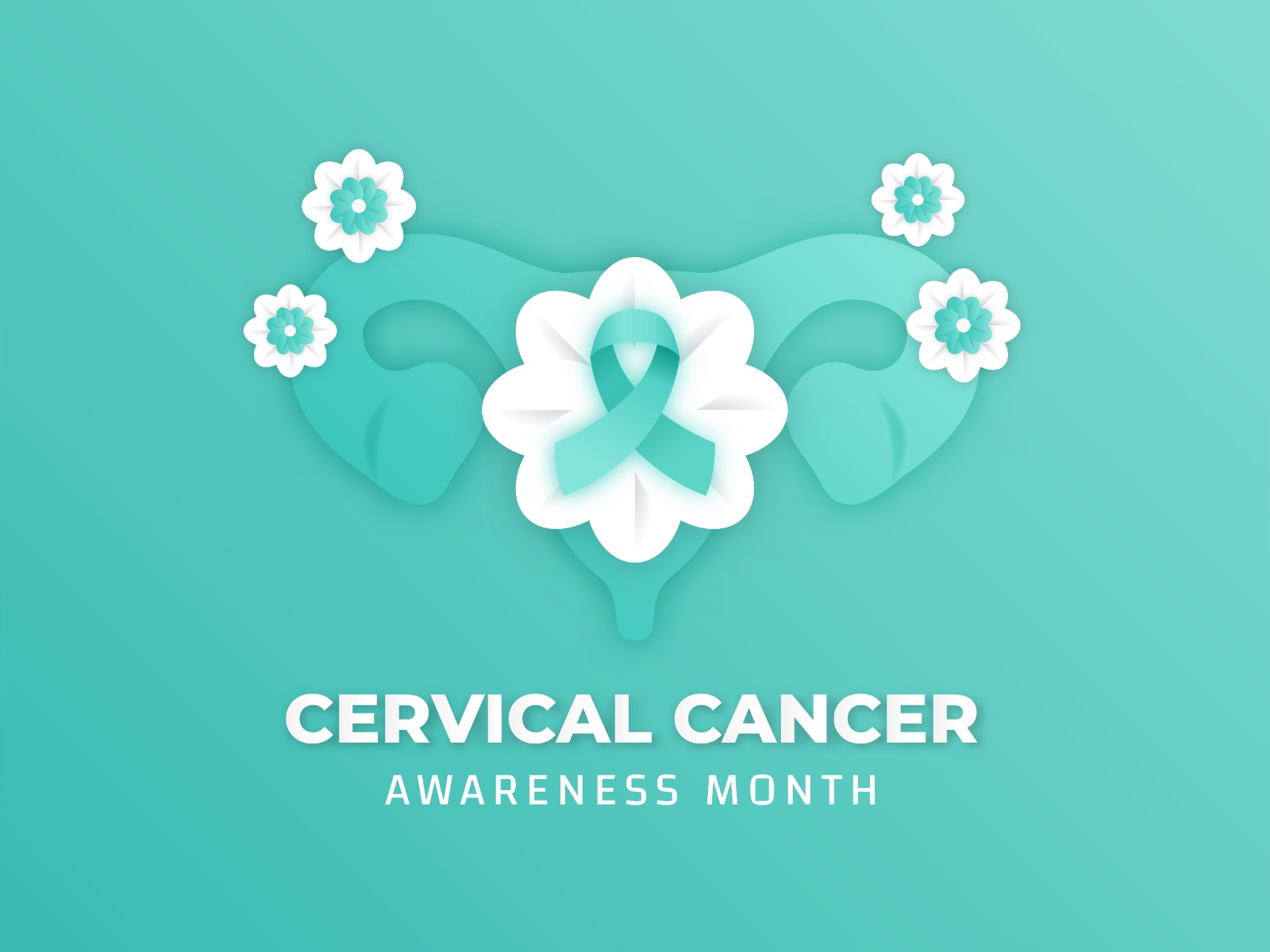Millions of Indian women suffer from cervical cancer at any given point of time but cases go mostly unnoticed till it is too late. Cervical cancer is of different types- glandular, squamous, or other - as there are many specialized cell types found in the cervix and any of those can become cancerous and malignant. The Human papillomavirus (HPV) is a pathogen that spreads through sexual contact and can greatly increase the incidence of cervical cancer in sexually active women. Let us learn more about this preventable cancer type and how early screening can help save lives.
January is Cervical Cancer Awareness Month
January has been celebrated as cervical cancer awareness month every year since 2002 and this year is no different. The International Agency for Cancer Research has come up with various initiatives to help in this regard. January 22-28 2025 will be celebrated as Cervical Cancer Prevention Week later this month. This is a great platform to use in the larger context- to talk to women and make them understand that a simple vaccination is super effective and will protect them for almost 15 years or even longer. So, if someone gets vaccinated when they are a teen, they can still show robust immunity many decades later. The number of cases is very high in certain age groups - like below 35 years of age. Why insist on vaccination? The HPV can cause infections repeatedly and increase the likelihood of an individual suffering from cervical cancer. The vaccine can be given to children when they are 10-12 years of age, up to the age of 26. Some of us may have missed this window, so it is okay to get doses up to 45 years of age. The theme for this year - ‘We Can Prevent Cervical Cancer’ is very apt and ties in beautifully with all the public health initiatives that are being rolled out or will be in the future.
Cervical Cancer In The Indian Context-
We know that cancer is the uncontrolled division of cells, causing a tumor to form in the affected region- which may be benign or malignant. So, when the cells of the cervix begin to do that due to say an infection or unknown causes, cancer may be detected. In India, it is the second most widespread cancer type, after breast cancer, with 1 in 53 women getting a positive diagnosis in their lifetime. The symptoms to be aware of include the following-
● Any bleeding which is unusual- between periods, after sex ,or even after menopause
● Severe pelvic pain
● Any weird-smelling discharge or bloody discharge
● If you show signs of infection
Why Early Screening Is Necessary-
Screening every few years is the easiest and most convenient way to know if you are at risk of developing cervical cancer. Some tests include a pap smear and getting an HPV test. Let us learn a little more about both of these tests-
● Pap Smear- A doctor will swab your cervix and collect some cells- which will be tested for markers and see if they are cancerous or not. It is painless and very accurate. Doctors recommend that you get this test done every 3-5 years if you are between 21-65 years of age.
● HPV DNA test- This is to check if you have an HPV infection by certain cancer-causing strains. But getting vaccinated does NOT mean that you skip pap smears- as that is more reliable and the vaccine does not protect against all strains of HPV.
In India especially, the numbers for screening are extremely dismal- only about 2% of the detected cases are due to early screenings. We can only increase this by making people understand how early screening initiatives work.
The WHO is trying to make this work by asking women to get pap smears at 35 and 45 years of age. The Union Minister has stated that they actively plan to vaccinate girls between the ages of 9-14 as it is a very effective preventive measure in the long term.
Conclusion- India has gone to great lengths in the last year - to help with cervical cancer screening, vaccination, research, and preventive screening as it has pledged 7.5 billion USD for the same. Treatment approaches keep evolving and keep getting better with each passing year but cancer can be an exhausting disease to deal with- both physically, mentally, and financially. So, when you can prevent it, why not take the chance? This makes much more sense if you look at data that says the 5-year survival rates for people who receive treatment in the initial stages are way better than those who come in much later, resulting in poorer outcomes.
FAQs-
1) What are the risk factors that we need to be aware of?
You should aim to get vaccinated against HPV, practice safe sex with condoms, and get screened every few years once you are 21.
2) What is HPV testing?
Human papillomavirus can cause genital warts and some strains can increase the incidence of cervical cancer, with persistent infection. Testing for the viral DNA can help you get the necessary treatment, if the results are positive, though it is not a necessity. You will get better without any medication too.
3) How is cervical cancer diagnosed and treated?
Pap smears and HPV tests are two reliable ways to test for cervical cancer, though a physical exam may be done at times. Some other tests include imaging and a cone biopsy.
4) Can men get HPV?
Yes, men can get HPV too, which is how they may transmit it to their sexual partners. People don’t need treatment in general and get better on their own. HPV can cause other kinds of cancers in men like anal, oropharyngeal, and penile cancers respectively.
5) How can women stay safe?
By getting HPV vaccinations, using protection during sex, and scheduling routine screenings every few years.




